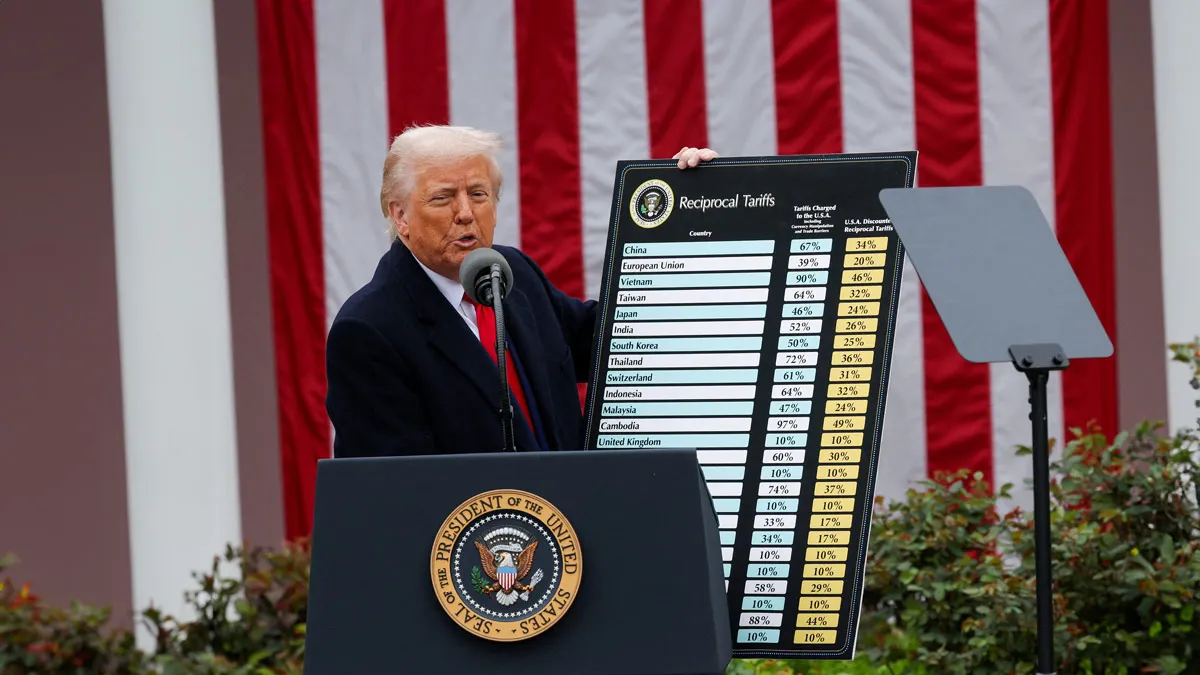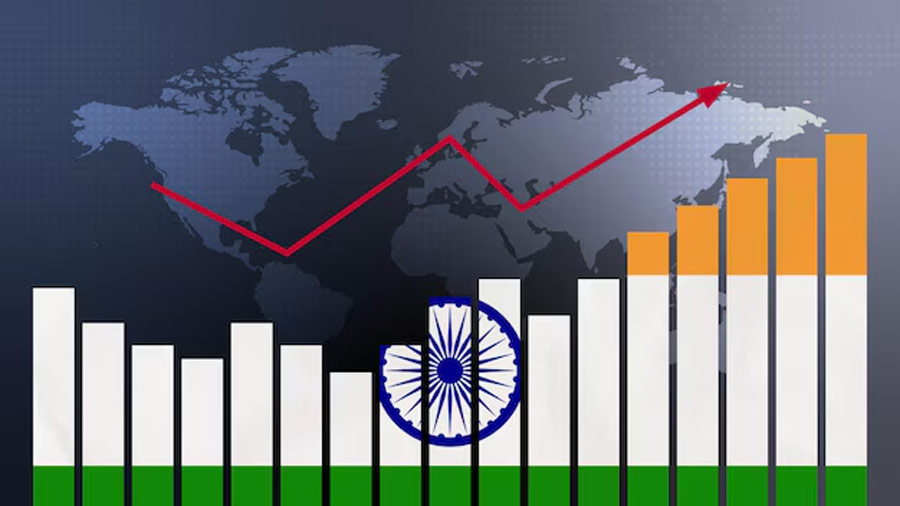
A new wave of steep tariffs imposed by President Donald Trump came into effect early Wednesday, April 9, 2025, targeting imports from multiple countries. These reciprocal tariffs go beyond the 10% base rate that was applied to several nations over the weekend. As global markets continue to plunge following Trump’s tariff announcement last week, the Union Cabinet is set to convene a crucial meeting today to devise strategies to mitigate the impact on India.
President Donald Trump’s ‘reciprocal’ tariffs on dozens of countries took effect on Wednesday, including a staggering 104% duty on Chinese goods, further escalating his global trade war. The sweeping tariffs have rattled financial markets, fuelling fears of a recession and erasing trillions in market value from major corporations.

This latest round of tariffs surpasses the 10% base rate imposed on several countries over the weekend. In total, imports from 86 nations are now subject to higher tariffs, ranging between 11% and 84%. China, in particular, faces a total tariff rate of 104% on its US exports, which includes a previously imposed 20% duty, a 34% additional tariff, and a last-minute 50% increase signed by Trump late Tuesday, according to CNBC.
Don't Miss: Donald Trump Was Asked ‘What is a Woman,' His Reply Is As Primitive As It Gets: Details Inside
However, Trump has dismissed concerns over the market downturn, creating uncertainty among investors about the longevity of the tariffs. While he has described them as ‘permanent,’ he has also claimed that they are forcing global leaders to seek negotiations.
In a major trade setback for India, US President Donald Trump has imposed a steep 27% reciprocal tariff on all Indian imports, a move that could shake the country’s economy. Announced during his ‘Liberation Day’ address, the tariff hike dashes New Delhi’s hopes for trade concessions and introduces new economic barriers.
Starting April 9, 2025, all Indian goods entering the US will be subject to a minimum 27% tariff, leaving businesses scrambling to assess the impact. While Trump praised Prime Minister Narendra Modi as a ‘great friend,’ he justified the tariffs by accusing India of imposing high duties on American goods while the US remained lenient for decades. "They are charging us 52%, and we charge almost nothing for years and years and decades," he said, framing the move as an effort to balance trade.

With the US-India trade deficit at $46 billion, Trump has signalled that these tariffs will remain in place until what he calls a ‘threat’ is addressed. The new tariff structure is expected to hit key Indian industries hard, from small businesses to major corporations, disrupting revenue streams across multiple sectors.
Don't Miss: Indian Woman Detained For 8 Hours At US Airport, Alleges Strip Search By Male Officer
In response, reports indicate that India is considering reducing tariffs on $23 billion worth of US imports including, gems, jewellery, pharmaceuticals, and auto parts, to ease tensions. However, no formal agreement has been reached yet, leaving the future of trade relations uncertain.
While the IT services sector may not face direct tariff implications, restrictive trade policies affecting other industries could have a ripple effect on technology spending.
Chirag Kachhadiya, Senior Research Analyst from Ashika Stock Broking, told us, “The US remains the largest revenue-contributing geography for large-cap Indian IT companies, accounting for over 50% of industry revenue. Sectors like BFSI, Automotive, Retail, and Discretionary, which are particularly sensitive to macroeconomic pressures, could further delay technology investments, continuing a slowdown for the past two years.”
In this environment, Mr Kachhadiya recommends TCS as a long-term investment, noting that its stock has corrected by 20% over the past four months. He said, “Despite not being cheap, its current valuation trading at 22x FY27 expected earnings makes it more reasonable."
Meanwhile, Mr Amit Jain, Co-Founder of Ashika Global Family Office Services, said, “Trump’s decision on reciprocal taxes introduces a new wave of uncertainty in global trade dynamics. For India, this could mean short-term volatility in equity markets, especially in export-driven sectors like Automobile, Pharma and IT. While selective large-cap stocks from these sectors may face pressure due to tariffs headwinds, India’s strong domestic consumption story remains intact, offering resilience. Investors should brace for fluctuations but focus on long-term opportunities in sectors less impacted by global trade tensions.”
The coming weeks will be critical for India. If swift action isn’t taken, these tariffs could severely impact exports, trade relations, and economic growth. The government faces a tough choice: either engage in negotiations and reduce tariffs on US goods or prepare for a prolonged trade standoff with significant economic consequences.
Keep reading Herzindagi for more such stories.
Credits: Freepik
Also watch this video
Herzindagi video
Our aim is to provide accurate, safe and expert verified information through our articles and social media handles. The remedies, advice and tips mentioned here are for general information only. Please consult your expert before trying any kind of health, beauty, life hacks or astrology related tips. For any feedback or complaint, contact us at [email protected].